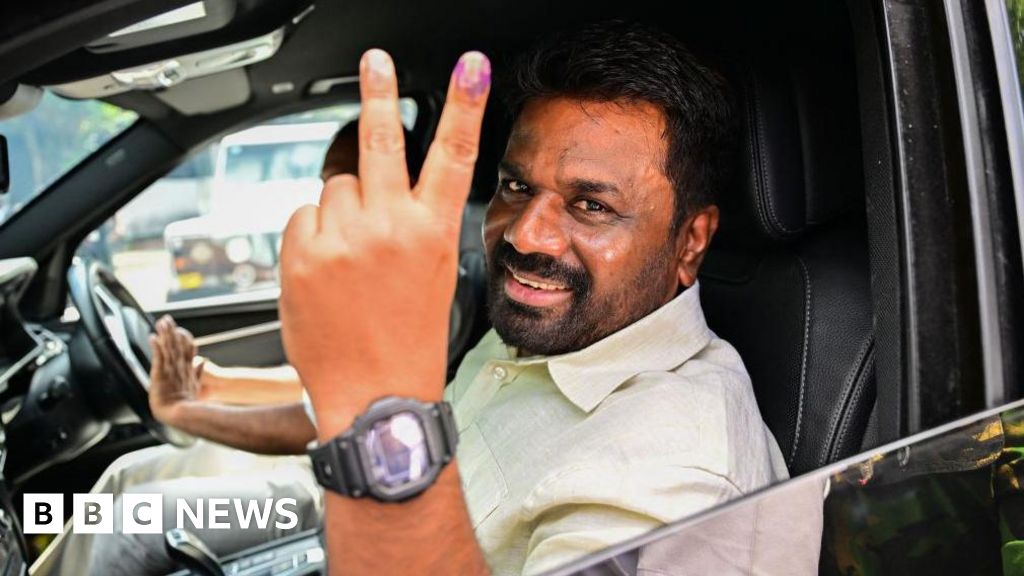High inflation, food and fuel shortages precipitated a political crisis in 2022 which led to the ousting of President Gotabaya Rajapaksa. His successor Ranil Wickremesinghe managed to negotiate a bailout package worth $3bn with the International Monetary Fund – but many Sri Lankans continue to feel economic hardship.
“We are still stuck with the problems we faced before. We still don’t have financial help even to fulfil our daily needs,” 26-year-old garment factory worker Manjula Devi, who works in the Katunayake Free Trade Zone near Colombo, told the BBC.
The number of people living below the poverty line in Sri Lanka has risen to 25.9% in the past four years. The World Bank expects the economy to grow by only 2.2% in 2024.
Disenchantment with established political players greatly helped the left-leaning Dissanayake during September’s election. His party has traditionally backed strong state intervention and lower taxes, and campaigned for leftist economic policies.
Dissanayake made history as Sri Lanka’s first president to be elected with less than 50% of the vote. Many observers think his alliance will do better this time.
How his alliance fares will be partly due to a fragmented opposition – with many leaders and parties breaking away into either smaller groups, or contesting as independent candidates.
Observers say the JVP-led alliance ran a more vibrant campaign than the opposition, which is likely to have a significant impact on the outcome of the election.
What is clear is that whoever comes into power will be under massive pressure to perform and live up to their campaign promises.
Sri Lanka’s economic situation remains precarious – and the main focus is still on providing essential goods and services. How the country progresses from this point will be a real challenge for the new government.
Additional reporting by Kelly Ng

